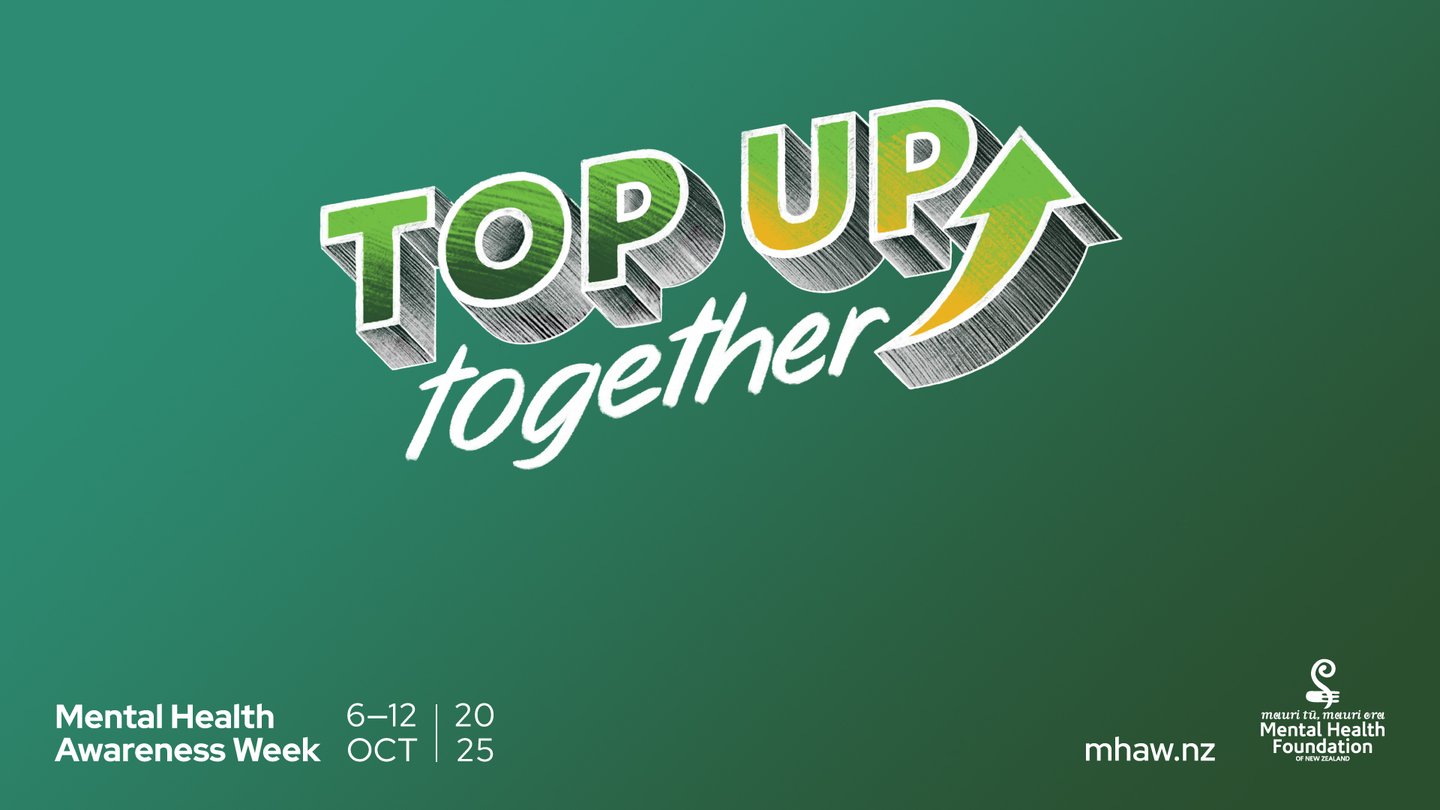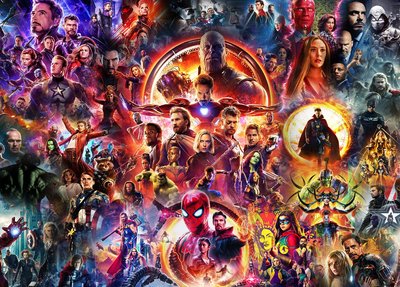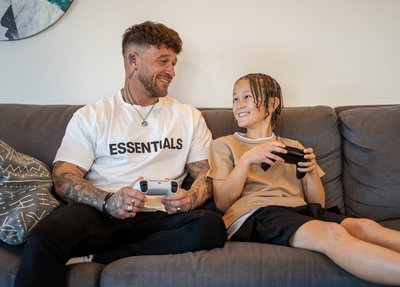
Mental Health Buzzwords: What are they and why you should care
Jess on Oct. 9, 2025
This blog was written by Ilja, one of our Youth Advisory Panel members, for Mental Health Awareness Week 2025.
This year’s theme, “Topping up together,” is all about connection and support – something we explore regularly with our panel. In the lead-up to MHAW, we sat down with our Youth Advisory Panel to talk about mental health and illness content on social media, in films, and in series, and the impact certain portrayals can have on young people.
Our kōrero highlighted the importance of media literacy, critical thinking, and reliable resources to help both young people and parents navigate what they see online – and to better understand what’s real and what’s not when it comes to mental health content.
What are mental health buzzwords and what are the impacts of using them?
Mental health buzzwords are being incorporated into everyday language on social media. But what are they? A buzzword is a word or phrase that is popular at a certain time or context. Within the context of mental health, buzzwords could be something innocent like; burnout, mindfulness, self-care. But when misused, some words can sometimes be more harmful such as; OCD, anxiety, manic, ADHD, autistic, and many more conditions or symptoms.
By using terms or phrases such as ‘I’m so OCD’, when referring to being clean, or ‘everyone's a bit autistic’, when that’s simply not true can oversimplify the significance of these disorders and people's lived experience of them. As a student, I hear these used a lot by my peers and it makes me realise how people are often not aware about how their words can hurt others. It makes me afraid to open up about my own struggles due to a fear of not being believed when trying to talk about it, as the words to describe them are becoming more and more normalised. By using words like this when describing everyday behaviour, the lines between what are everyday experiences and genuine disorders and symptoms, it is harder to have a genuine conversation as the seriousness and impact of these words and conditions get diminished.
Over the past five years I’ve really seen an increase in creators making mental health content and using buzzwords, honestly it seems like every other creator is posting a ‘top ten symptoms of -fill in the blank-’ video that is full of misinformation and ignores the complexity that is mental health. I can’t spend even ten minutes on instagram without seeing multiple videos spreading misinformation and using mental health buzzwords. But not every mental health buzzword is a negative thing, they can be used to help combat this very problem by people speaking up, in both comment sections and posting themselves. Or simply even by educating yourself on how this impacts people and changing your language can make it easier for everyone around you. By listening to the people who are trying to educate people, you can make a safer community both online and offline for everyone.
Some buzzwords can give people genuine terms to use and raise awareness about topics everyone should know about. I’ve seen the difference that has happened since ‘self-care’ or ‘grounding’ started being used as buzzwords. People are practicing self-care more, reflecting mentally, physically and emotionally. For me, having terms to use helped me advocate for what I need in an easier way, as people knew what I meant when I said ‘self-care’ and accommodated that. With an increase in these positive terms both online and offline people are able to not only feel better, but move through the world easier and prioritise themselves better, one of the best things you can do for your mental health.
As a member of the YAP with the Classification Office, we often talk about what we see on our screens and how that can affect people. One of the things we talk about is the language we use and hear, sometimes linking to mental health. The Office and the YAP look at how language shows up within the media and how that impacts people, along with providing trustworthy information so everyone can make informed and safe decisions about the media they interact with. For me, writing about mental health buzzwords and the harm they can cause is my way of showing people how making small changes in the words we use both online and offline can have a big impact on the people around you and help create safer spaces for young people.
I think it’s important to raise awareness around other conditions and open the door to more genuine conversations about them, helping to destigmatise them, without turning them into buzzwords. From my perspective, the best thing parents/whānau can do is learn about both the positive and negative buzzwords and the impact of them. This would help to educate and inform people about how buzzwords and misinformation affect people, and the difference they could make within their communities.
– Ilja, Youth Advisory Panel member
Subscribe to our blog
Stay up to date with the Classification Office blog.


